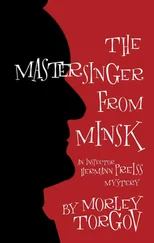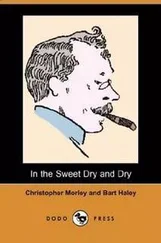Christopher Morley - Where the Blue Begins
Здесь есть возможность читать онлайн «Christopher Morley - Where the Blue Begins» весь текст электронной книги совершенно бесплатно (целиком полную версию без сокращений). В некоторых случаях можно слушать аудио, скачать через торрент в формате fb2 и присутствует краткое содержание. Жанр: Проза, на английском языке. Описание произведения, (предисловие) а так же отзывы посетителей доступны на портале библиотеки ЛибКат.
- Название:Where the Blue Begins
- Автор:
- Жанр:
- Год:неизвестен
- ISBN:нет данных
- Рейтинг книги:5 / 5. Голосов: 1
-
Избранное:Добавить в избранное
- Отзывы:
-
Ваша оценка:
- 100
- 1
- 2
- 3
- 4
- 5
Where the Blue Begins: краткое содержание, описание и аннотация
Предлагаем к чтению аннотацию, описание, краткое содержание или предисловие (зависит от того, что написал сам автор книги «Where the Blue Begins»). Если вы не нашли необходимую информацию о книге — напишите в комментариях, мы постараемся отыскать её.
Where the Blue Begins — читать онлайн бесплатно полную книгу (весь текст) целиком
Ниже представлен текст книги, разбитый по страницам. Система сохранения места последней прочитанной страницы, позволяет с удобством читать онлайн бесплатно книгу «Where the Blue Begins», без необходимости каждый раз заново искать на чём Вы остановились. Поставьте закладку, и сможете в любой момент перейти на страницу, на которой закончили чтение.
Интервал:
Закладка:
My mathematics is very rusty, he said to himself, but I seem to remember something about a locus, which was a curve or a surface every point on which satisfied some particular equation of relation among the coordinates. It begins to look to me as though life might be a kind of locus, whose commanding equation we call God. The points on that locus cannot conceive of the equation, yet they are subject to it. They cannot conceive of that equation, because of course it has no existence save as a law of their being. It exists only for them; they, only by it. But there it is — a perfect, potent, divine abstraction.
This carried him into a realm of disembodied thinking which his mind was not sufficiently disciplined to summarize. It is quite plain, he said to himself, that I must rub up my vanished mathematics. For certainly the mathematician comes closer to God than any other, since his mind is trained to conceive and formulate the magnificent phantoms of legality. He smiled to think that any one should presume to become a parson without having at least mastered analytical geometry.
The ferry had crossed and recrossed the river several times, but Gissing had found no conclusion for these thoughts. As the boat drew toward her slip, she passed astern of a great liner. Gissing saw the four tall funnels loom up above the shed of the pier where she lay berthed. What was it that made his heart so stir? The perfect rake of the funnels — just that satisfying angle of slant — that, absurdly enough, was the nobility of the sight. Why, then? Let's get at the heart of this, he said. Just that little trick of the architect, useless in itself — what was it but the touch of swagger, of bravado, of defiance — going out into the vast, meaningless, unpitying sea with that dainty arrogance of build; taking the trouble to mock the senseless elements, hurricane, ice, and fog, with a 15-degree slope of masts and funnels damn, what was the analogy?
It was pride, it was pride! It was the same lusty impudence that he saw in his perfect city, the city that cried out to the hearts of youth, jutted her mocking pinnacles toward sky, her clumsy turrets verticalled on gold! And God, the God of gales and gravity, loved His children to dare and contradict Him, to rally Him with equations of their own.
“God, I defy you!” he cried.
CHAPTER EIGHT
Time is a flowing river. Happy those who allow themselves to be carried, unresisting, with the current. They float through easy days. They live, unquestioning, in the moment.
But Gissing was acutely conscious of Time. Though not subtle enough to analyze the matter acutely, he had a troublesome feeling about it. He kept checking off a series of Nows. “Now I am having my bath,” he would say to himself in the morning. “Now I am dressing. Now I am on the way to the store. Now I am in the jewellery aisle, being polite to customers. Now I am having lunch.” After a period in which time ran by unnoticed, he would suddenly realize a fresh Now, and feel uneasy at the knowledge that it would shortly dissolve into another one. He tried, vainly, to swim up-stream against the smooth impalpable fatal current. He tried to dam up Time, to deepen the stream so that he could bathe in it carelessly. Time, he said, is life; and life is God; time, then, is little bits of God. Those who waste their time in vulgarity or folly are the true atheists.
One of the things that struck him about the city was its heedlessness of Time. On every side he saw people spending it without adequate return. Perhaps he was young and doctrinaire: but he devised this theory for himself — all time is wasted that does not give you some awareness of beauty or wonder. In other words, “the days that make us happy make us wise,” he said to himself, quoting Masefield's line. On that principle, he asked, how much time is wasted in this city? Well, here are some six million people. To simplify the problem (which is permitted to every philosopher) let us (he said) assume that 2,350,000 of those people have spent a day that could be called, on the whole, happy: a day in which they have had glimpses of reality; a day in which they feel satisfaction. (That was, he felt, a generous allowance.) Very well, then, that leaves 3,650,000 people whose day has been unfruitful: spent in uncongenial work, or in sorrow, suffering, and talking nonsense. This city, then, in one day, has wasted 10,000 years, or 100 centuries. One hundred centuries squandered in a day! It made him feel quite ill, and he tore up the scrap of paper on which he had been figuring.
This was a new, disconcerting way to think of the subject. We are accustomed to consider Time only as it applies to ourselves, forgetting that it is working upon everyone else simultaneously. Why, he thought with a sudden shock, if only 36,500 people in this city have had a thoroughly spendthrift and useless day, that means a net loss of a century! If the War, he said to himself, lasted over 1,500 days and involved more than 10,000,000 men, how many aeons — He used to think about these things during quiet evenings in the top-floor room at Mrs. Purp's. Occasionally he went home at night still wearing his store clothes, because it pleased good Mrs. Purp so much. She felt that it added glamour to her house to have him do so, and always called her husband, a frightened silent creature with no collar and a humble air, up from the basement to admire. Mr. Purp's time, Gissing suspected, was irretrievably wasted — a good deal of it, to judge by his dusty appearance, in rolling around in ashcans or in the company of the neighbourhood bootlegger; but then, he reflected, in a charitable seizure, you must not judge other people's time-spendings by a calculus of your own.
Perhaps he himself was growing a little miserly in this matter. Indulging in the rare, the sovereign luxury of thinking, he had suddenly become aware of time's precious fluency, and wondered why everyone else didn't think about it as passionately as he did. In the privacy of his room, weary after the day afoot, he took off his cutaway coat and trousers and enjoyed his old habit of stretching out on the floor for a good rest. There he would lie, not asleep, but in a bliss of passive meditation. He even grudged Mrs. Purp the little chats she loved — she made a point of coming up with clean towels when she knew he was in his room, because she cherished hearing him talk. When he heard her knock, he had to scramble hastily to his feet, get on his clothes, and pretend he had been sitting calmly in the rocking chair. It would never do to let her find him sprawled on the floor. She had an almost painful respect for him. Once, when prospective lodgers were bargaining for rooms, and he happened to be wearing his Beagle and Company attire, she had asked him to do her the favour of walking down the stairs, so that the visitors might be impressed by the gentility of the establishment.
Of course he loved to waste time — but in his own way. He gloated on the irresponsible vacancy of those evening hours, when there was nothing to be done. He lay very still, hardly even thinking, just feeling life go by. Through the open window came the lights and noises of the street. Already his domestic life seemed dim and far away. The shrill appeals of the puppies, their appalling innocent comments on existence, came but faintly to memory. Here, where life beat so much more thickly and closely, was the place to be. Though he had solved nothing, yet he seemed closer to the heart of the mystery. Entranced, he felt time flowing on toward him, endless in sweep and fulness. There is only one success, he said to himself — to be able to spend your life in your own way, and not to give others absurd maddening claims upon it. Youth, youth is the only wealth, for youth has Time in its purse!
In the store, however, philosophy was laid aside. A kind of intoxication possessed him. Never before had old Mr. Beagle (watching delightedly from the mezzanine balcony) seen such a floorwalker. Gissing moved to and fro exulting in the great tide of shopping. He knew all the best customers by name and had learned their peculiarities. If a shower came up and Mrs. Mastiff was just leaving, he hastened to give her his arm as far as her limousine, boosting her in so expeditiously that not a drop of wetness fell upon her. He took care to find out the special plat du jour of the store's lunch room, and seized occasion to whisper to Mrs. Dachshund, whose weakness was food, that the filet of sole was very nice to-day. Mrs. Pomeranian learned that giving Gissing a hint about some new Parisian importations was more effective than a half page ad. in the Sunday papers. Within a few hours, by a judicious word here and there, he would have a score of ladies hastening to the millinery salon. A pearl necklace of great value, which Mr. Beagle had rebuked the jewellery buyer for getting, because it seemed more appropriate for a dealer in precious stones than for a department store, was disposed of almost at once. Gissing casually told Mrs. Mastiff that he had heard Mrs. Sealyham intended to buy it. As for Mrs. Dachshund, who had had a habit of lunching at Delmonico's, she now was to be seen taking tiffin at Beagle's almost daily. There were many husbands who would have been glad to shoot him at sight on the first of the month, had they known who was the real cause of their woe.
Читать дальшеИнтервал:
Закладка:
Похожие книги на «Where the Blue Begins»
Представляем Вашему вниманию похожие книги на «Where the Blue Begins» списком для выбора. Мы отобрали схожую по названию и смыслу литературу в надежде предоставить читателям больше вариантов отыскать новые, интересные, ещё непрочитанные произведения.
Обсуждение, отзывы о книге «Where the Blue Begins» и просто собственные мнения читателей. Оставьте ваши комментарии, напишите, что Вы думаете о произведении, его смысле или главных героях. Укажите что конкретно понравилось, а что нет, и почему Вы так считаете.










